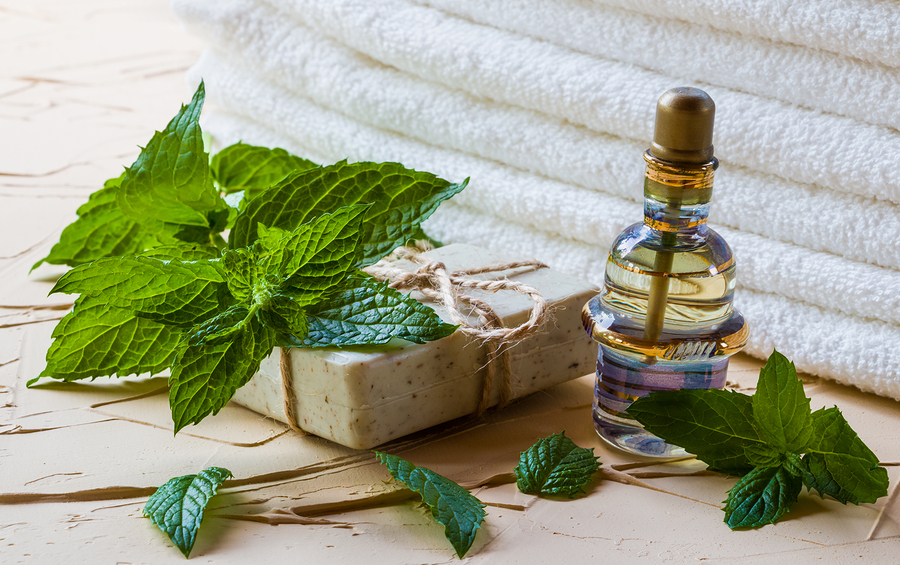- Make It Yourself Lavender Heart-Shaped Bath Bombs!
- 20 Things You Never Knew About “Down There”
- 12 Best Foods For Those Suffering From Arthritis Pain
- 12 Personal Hygiene Mistakes Almost Everyone Makes (Mom Never Told You About #4!)
- 15 Medicinal Plants And Herbs From The Cherokee People
- 12 Mind-Blowing Benefits Of Drinking Coconut Water During Pregnancy
- 12 Outstanding Winter Foods That Won’t Fatten You Up Like A Christmas Turkey
7 Essential Oils You Should Never Be Without
How To Use Essential Oils
The main ways that essential oils can be used safely are:
- Diffusers
- Reed sticks
- Topically (when diluted)
Essential oils will improve your immune system and speed up the recovery time when you are sick. They can also help to lessen the time it takes for wounds to heal. They can balance hormones, make terrific cleaning or beauty products, cleanse the air, and they can be used in hundreds of recipes for everything from headache-relieving tea to natural bug deterrents.
Are you ready? Let’s get started with the top seven essential oils that you should always have on hand for those little emergencies and for everyday cleaning.
1. Peppermint
This is a terrific oil for general all-around purposes. Peppermint will help improve mental alertness, improve energy levels, and give you a lift in spirits, especially if you are trying to cut back on sugar and caffeine. Peppermint is the oil to turn to when it comes to digestive problems. It helps with almost every single digestive problem you can think of, including bloating, poor digestion, indigestion, nausea, and general stomach pain. Peppermint triggers the brain’s satiety center, which means that simply smelling peppermint can help to make you feel as if you have eaten and can keep you feeling full for hours. Peppermint oil is also anti-bacterial, which makes it perfect for your homemade toothpaste and keep your gums and your mouth free from the bacteria that can cause gingivitis and cavities. It also makes a terrific mouthwash.
2. Tea Tree Oil
This is an extremely powerful and volatile essential oil that comes from trees native to Australia. The medicinal compounds in tea tree oil are well known to the Aboriginal people of Australia. They used the leaves of this tree to make medicinal bandages for skin diseases, burns, and wounds. Women used the leaves and bark to protect their babies from infections, and some report that they used to even stew and eat the leaves for internal cleansing. Tea tree oil has anti-fungal, anti-bacterial, anti-microbial, antiseptic, anti-parasitic, and anti-viral compounds that can’t be found in any other oil. This oil should never be applied without diluting it first. Tea tree oil makes an excellent insect repellant, a massage oil for aching muscles, a germ-killing mouthwash, plus it heals cuts, burns, fungal infections, abrasions, and psoriasis. You can mix this with water to make a powerful disinfectant that works great in the kitchen and bath.
3. Rosemary
This is the oil to turn to when you need to stay focused and alert. Rosemary has been shown to improve both memory and concentration levels in studies with students. The ancient Egyptians and Romans used this herb both as a sweet-smelling additive not only to their bathwater, but also to their cooking dishes to add flavor. Rosemary is said to have positive effects on the heart, liver, and brain. With its powerful anti-microbial and antiseptic compounds, it also works well on skin problems. Rosemary has powerful antioxidants as well, which means that it can improve the immune system and stop the signs of premature aging. One little known fact is that rosemary essential oil can stimulate hair growth. Add about six drops of rosemary essential oil to both your favorite shampoo and conditioner to encourage longer, thicker, more beautiful locks.
Continue to Page 3

































